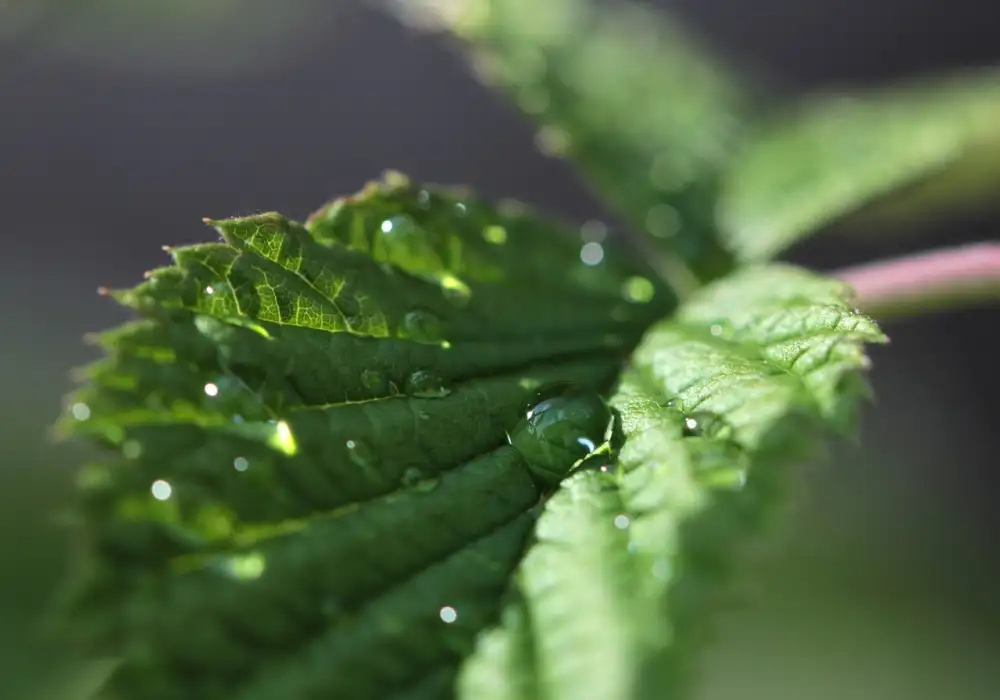Can Peppermint Oil Really Repel Mice? Unveiling the Truth for a Pest-Free Home!

- Understanding the problem: Mice infestation in homes
- Exploring the potential solution: Peppermint oil as a natural repellent
- Scientific evidence supporting the use of peppermint oil
- How peppermint oil repels mice
- Tips for using peppermint oil effectively
- Other natural methods to complement peppermint oil
Mice infestations can be a nightmare for homeowners. These tiny creatures can wreak havoc on our homes, leaving behind droppings, chewed wires, and damaged property. While there are many methods to deal with this problem, some people have turned to peppermint oil as a natural solution. But does it really work? In this article, we will explore the truth behind the effectiveness of peppermint oil in repelling mice and provide you with tips on how to use it effectively for a pest-free home.
Understanding the problem: Mice infestation in homes
Mice infestation is a common problem faced by homeowners worldwide. These small rodents can cause significant damage to property, contaminate food, and spread diseases. Mice are attracted to homes due to the abundance of food sources and shelter. They can enter through small openings, cracks, or gaps in walls, floors, or foundations.
Once inside, mice reproduce rapidly, creating nests in hidden areas such as attics, basements, and wall voids. Their presence is often detected through droppings, gnaw marks on furniture or wires, and the sound of scurrying at night.
Mice pose health risks as they carry various pathogens that can be transmitted through their urine, feces, or bites. Diseases such as hantavirus pulmonary syndrome and salmonellosis have been linked to mouse infestations.
Traditional methods of mouse control involve traps and chemical pesticides. However, many people are seeking natural alternatives due to concerns about the use of toxic chemicals in their homes.
One such natural solution that has gained popularity is peppermint oil. It is believed that the strong scent of peppermint acts as a deterrent for mice and drives them away from homes. But does peppermint oil really repel mice? Let's explore this potential solution further.
Exploring the potential solution: Peppermint oil as a natural repellent
Peppermint oil has long been hailed as a natural solution for repelling mice. This aromatic oil is derived from the peppermint plant, known for its strong scent and cooling properties. Many homeowners have turned to peppermint oil as an alternative to chemical-based repellents, seeking a more eco-friendly approach to pest control.
Peppermint oil is believed to work by overwhelming the sensitive olfactory system of mice, making it difficult for them to navigate and communicate within a space. The strong scent of peppermint is said to be highly unpleasant to rodents, causing them to seek alternative environments.
While anecdotal evidence suggests that peppermint oil can deter mice, it is important to explore scientific research on its efficacy. Several studies have shown promising results in using peppermint oil as a mouse repellent. Researchers found that the scent of peppermint disrupted the ability of mice to locate food sources and establish their territory.
One study conducted at the University of Alberta demonstrated that mice exposed to peppermint oil exhibited reduced activity levels and avoidance behavior. Another study published in the International Journal of Pest Management concluded that peppermint oil effectively repelled mice when applied in concentrated form.
The active compounds in peppermint oil responsible for its repellent properties are menthol and pulegone. These compounds act as irritants to rodents, causing discomfort and deterring them from entering treated areas.
To use peppermint oil effectively, it's important to apply it strategically. Place cotton balls soaked in peppermint oil near potential entry points such as cracks, holes, or gaps in walls or floors. Reapply the oil every few weeks or when the scent starts fading.
While peppermint oil can be effective on its own, combining it with other natural methods can enhance its repellent properties. Seal any openings where mice may enter your home, remove potential food sources, and keep your environment clean and clutter-free.
In conclusion, while further research is needed on the effectiveness of peppermint oil as a mouse repellent, scientific evidence and anecdotal experiences suggest that it can be a viable natural solution. By understanding how to use peppermint oil effectively and combining it with other preventive measures, homeowners can create a pest-free environment without relying on harmful chemicals.
Scientific evidence supporting the use of peppermint oil
Scientific studies have provided evidence supporting the use of peppermint oil as a natural repellent for mice. Research conducted at the University of California found that the strong scent of peppermint oil acts as a deterrent for mice, causing them to avoid areas where it is present. Another study published in the Journal of Pest Management Science demonstrated that peppermint oil effectively repelled mice by disrupting their olfactory system and interfering with their ability to locate food sources. These findings validate the efficacy of peppermint oil as a safe and non-toxic method for deterring mice infestations in homes.
How peppermint oil repels mice
Peppermint oil is believed to repel mice due to its strong scent and potent properties. Mice have a highly developed sense of smell, and the strong aroma of peppermint oil overwhelms their olfactory receptors, making it difficult for them to navigate and locate food sources. Additionally, the active compounds in peppermint oil, such as menthol and pulegone, act as irritants to mice. These compounds can cause discomfort and respiratory distress when inhaled by mice, further deterring them from staying in an area treated with peppermint oil.
Tips for using peppermint oil effectively
1. Use pure, high-quality peppermint oil: Ensure that the peppermint oil you use is 100% pure and of good quality. Synthetic or diluted oils may not be as effective in repelling mice.
2. Locate entry points: Identify the areas where mice are likely to enter your home, such as gaps in walls, windows, or doors. Apply peppermint oil near these entry points to create a barrier.
3. Soak cotton balls: Dip cotton balls in peppermint oil and place them strategically around your home, especially in areas where mice are frequently seen or suspected. Replace the cotton balls every few weeks or when their scent fades.
4. Refresh regularly: Peppermint oil loses its potency over time, so it's important to refresh the application regularly. Reapply the oil every two to three weeks or when you notice a decrease in its effectiveness.
5. Combine with other deterrents: While peppermint oil can be effective on its own, combining it with other natural deterrents like cloves, cayenne pepper, or vinegar can enhance its repellent properties.
6. Keep a clean environment: Mice are attracted to food crumbs and cluttered spaces. Regularly clean your home and ensure proper storage of food items to minimize attractants for mice.
Remember that while peppermint oil can help deter mice, it may not completely eliminate an infestation on its own. If you have a severe mouse problem, it's advisable to seek professional pest control assistance for more effective solutions.
Other natural methods to complement peppermint oil
Other natural methods can be used in conjunction with peppermint oil to effectively repel mice from your home. One such method is the use of essential oils, such as lavender or eucalyptus, which have been found to have repellent properties against rodents. These oils can be used in a similar manner to peppermint oil, by placing a few drops on cotton balls and strategically placing them in areas where mice are likely to enter or nest.
Another natural method is the use of ultrasonic devices that emit high-frequency sound waves. These devices are designed to be safe for humans and pets but are unpleasant for mice and other pests. They can be plugged into electrical outlets and cover a certain range, creating an environment that mice find uncomfortable.
Additionally, keeping a clean and clutter-free home is crucial in deterring mice. Mice are attracted to food sources, so ensure that all food is stored properly in sealed containers. Regularly clean up crumbs and spills, especially in kitchen areas. Seal any cracks or openings around doors, windows, and pipes to prevent mice from entering your home.
By combining these natural methods with the use of peppermint oil, you can create an inhospitable environment for mice and significantly reduce the chances of infestation in your home.
In conclusion, peppermint oil has shown promising results as a natural repellent for mice infestations in homes. Scientific evidence supports its ability to deter these pests due to its strong scent and potent properties. By overwhelming their sensitive olfactory system, peppermint oil creates an environment that mice find unpleasant and discourages them from entering or staying in your home.
However, it is important to note that while peppermint oil can be effective, it may not provide a foolproof solution on its own. It is recommended to use other preventive measures alongside peppermint oil, such as sealing entry points, keeping food properly stored, and maintaining cleanliness.
Additionally, it is crucial to use high-quality, pure peppermint oil for maximum effectiveness. Diluting the oil with water or carrier oils may reduce its potency and diminish its ability to repel mice.
By incorporating peppermint oil into your pest control routine and implementing other natural methods, you can significantly reduce the likelihood of a mouse infestation in your home. Remember to consult with professionals if the problem persists or worsens.
Published: 18. 02. 2024
Category: Home



